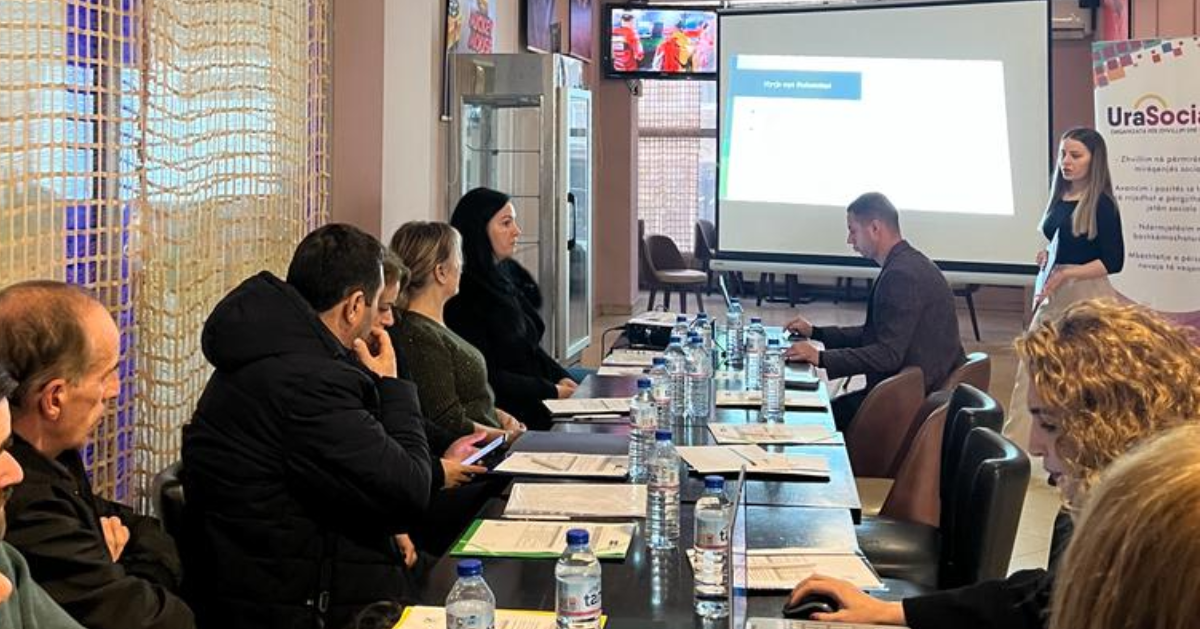The member organization of the Kosovo Women’s Network (KWK), Handikos Mitrovica, on August 19 published the report “Challenges of women and girls with disabilities during COVID-19 in the municipality of Mitrovica”.
Some of the problems that were mentioned in the findings of this research were the physical and psychological violence that women and girls with disabilities encountered during the pandemic; problems in obtaining social services in public institutions due to the lack of access; and the further deterioration of the situation of women with disabilities in employment.
The research, in which 65 people participated, found that in order to receive social services, family members were forced to carry family members with disabilities up to the third floor as the facility does not have an elevator.

After sharing the findings of the research by Handikos Mitrovica, Arbër Berisha from the Ombudsperson Institution of Kosovo and Gani Berisha, director of Social Work in the municipality of Mitrovica, admitted that their offices are inaccessible for people with disabilities. Therefore, both institutions at the meeting agreed to push forward the idea that one of the offices on the ground floor should be used to hear complaints and to accept the requests of people with disabilities, at least until the facility is equipped with an elevator.
According to this research, learning during the COVID-19 pandemic was not adapted to different types of disabilities.
“Also in the region of Mitrovica, there is a need for the functioning of the Pedagogical Assessment Team and the drafting of individual educational plans for children with disabilities in coordination with the DKA, the PSC, schools and parents”, the report states.

The director of Handikos Mitrovica, Myrvete Hasani, said that representatives from the Directorate of European Integration and Social Welfare and from the Directorate of Health did not participate in the drive despite all the confirmation. However, she said that these directorates will be kept informed about the problems and challenges of people with disabilities.
Hasani said that during the research they noticed that women and girls with disabilities could not have regular gynecological check-ups due to inadequate conditions.
“There is no bed where they can carry out that check and during the pandemic they also had a lack of hygiene tools. We have tried to help them a little but we have no chance. So, I believe that through this research we have to fight to improve the conditions for these women and girls,” said Hasani.
The member of Handikos MItrovica, Leonita Sadiku, said that the research clearly shows the problems that women and girls have gone through during the period of isolation as a result of the pandemic. She calls for concrete help and not just promises for people with disabilities.
“I have lobbied a lot and tried a lot so that it is always better and there are no barriers. However, I am seeing that it is very difficult. Lobby, lobby, lobby and in the end, you get very little”, said Sadiku, who, although she is a lawyer, is unable to get a job.
“Within this month I have applied to maybe 15 places and what is even more painful, I have not received a single answer. At least one answer that I was not selected or something, but I was not called in any interview,” Sadiku says.
The research involved different methods, including 50 face-to-face interviews with women and girls with disabilities; 4 focus groups with women and girls with disabilities; and meetings with 8 relevant institutions in the municipality of Mitrovica and observing the participants.
Handikos in Mitrovica has been supported within the framework of the 17th round of the Kosovo Women’s Fund (KWF) with the support of the European Union Office in Kosovo through the KWN initiative “Raising the capacities and sustainability of CSOs: Advancing gender equality among of the COVID-19 pandemic.”







